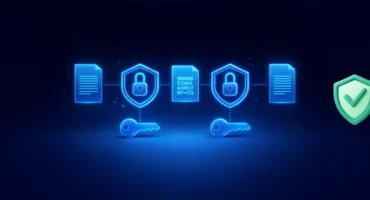Free VPN vs Paid VPN: Which is Better to Choose?
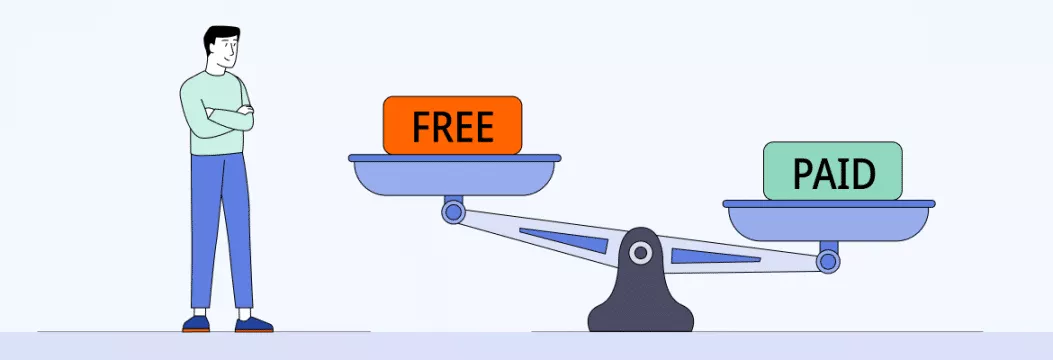
The lack of a price tag… what could be more appealing? That’s why so many people turn to free VPNs. Should they do it, though? Are there any hidden costs of paying nothing? In this article we’ll cover the long-lasting free VPN vs paid VPN debate and compare the two head-to-head.
What is a free VPN service?
Let’s start with some basics. A free VPN is a VPN service for which you don’t have to pay any subscription fees (yeah, thanks, cap). The thing is, however, that maintaining such a service comes with a lot of work and investment. So, how do free VPNs stay afloat? Spoiler alert — you still have to pay in one way or another when using a free provider. Keep reading to discover the shocking truth.
How do free VPNs make money?
So, where is the catch and how do free VPNs sustain their business?
By offering you limited set of features
A popular strategy often used by free VPNs. They can offer users a set of limited features to encourage the latter to upgrade to a paid plan. With free VPNs, you might have data caps or a very limited server network to choose from. So, to enjoy all the benefits a great VPN has to offer, subscribing would be a way to go.
By tracking and selling your data
Probably one of the easiest ways to make money is to sell your data to so-called data brokers, which make a new bustling economy largely operating in the shadows. This method for sure is lucrative. That’s why free VPNs can turn to tracking your online activity: what websites you visit, what you buy, even what device you use, and so on to then sell it and make profit.
By bombarding you with ads
Capable of driving you up the wall, ads bombardment is a popular strategy to monetize free services. Free VPNs often sell your internet traffic to advertisers. As a result, you’ll constantly see relentless images of ads. Definitely annoying. And in addition to disrupting your browsing experience, it can also reduce the speed and efficiency of your browser. On top of that, many pop-ups can carry malware. So it’s better to avoid seeing them altogether.
Disadvantages of using free VPN
Free VPNs may often seem too good to be true. And they are, in many cases. Even if you don’t pay in money, the price, although different, is still to be paid. Let’s take a closer look at what risks come with using free VPNs.
- Your cybersecurity is threatened. As we’ve mentioned before, your data isn’t safe with free VPNs — they can track, sell, or involuntarily reveal it. For example, free VPN provider Quickfox, which gives access to Chinese websites from outside the country, suffered a data breach when it exposed the Personally Identifiable Information (PII) of over a million of its users. Overall, free VPNs don’t live up to the top-notch digital security and safety VPN services promise. All because they have weak server infrastructure and limited functionality. In turn, you get poor security and lack of privacy.
- Limited data usage and performance. A common restriction when using a free VPN — data caps as well as rare to none cybersecurity features. Overall, a free VPN may do when you need to use a VPN just once for a simple task. But if you worry about digital security or want to do something traffic-heavy, like streaming, forget about great connection speeds — a free VPN definitely won’t be your guy here.
- Exposure to malware. You often use a VPN to enhance your security online, but tables can turn sometimes, with free VPNs bringing more harm than good to you. An analysis of 283 free Android VPN apps shows that 38% had malware or malwertising presence in them.
So yeah, free still comes at a price — as we can see, free VPNs greatly compromise your safety online.
Free VPN vs paid VPN: Functionality compared
But are paid VPNs any better than their free counterparts? To draw a clearer line between free and paid VPNs, let’s compare the two head-to-head in six categories.
Confidentiality and security
A paid VPN is a definite winner here. Paid options always provide clear conditions for using their service. And the need for payment implies responsibility. Likewise, free VPNs are often offered without any conditions or guarantees. They also often use weak encryption algorithms in contrast to robust ones used by paid VPNs, like AES-256 (the strongest encryption standard to date, unbreakable by brute force).
Performance
Paid VPN performance is higher compared to free VPN. Why? A large network of servers pays off for paid VPNs (more on that in a bit). Also, as the number of clients grows, developers have to launch and configure new hardware. This is to maintain the required bandwidth and performance. Performance of free VPNs is lower. Getting more popular, they often just can’t keep up with the load on the equipment and the influx of users due to a limited functionality.
Connection speed and traffic
Another win for a paid VPN. It lets you connect to a server stress-free. Without data caps. If some providers do have limits, they are always significantly lighter compared to free access. Free VPNs provide a weak channel which many users usually share. And it leads to a drop in speed. There may be no traffic limits, but you still can’t do something traffic-heavy. Users also often come across network congestion and connection drops.
Geography
Large providers of paid VPNs often host servers around the whole world. And it opens up more opportunities for users if they want to access geo-blocked content, for example, and get great speeds. Besides, you can quickly hop on another server if necessary. Free VPN servers, though, usually don’t have large-scale infrastructure.
Let’s take a look at ZenMate, one of the most popular free VPNs. It offers users limited set of features in its free version to push them to upgrade to pro (hello, reason #1 in how free VPNs make their money). So, you can connect to only four servers on a free version. Here’s how it looks in Chrome:
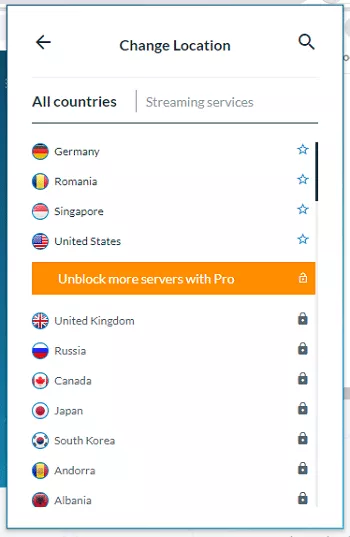
Say you want to unblock UK Netflix. With this provider, it’ll be mission impossible.
At the same time, a paid provider VeePN offers 2,500+ servers in 60 countries, UK including. So, accessing Netflix seems pretty much possible now.
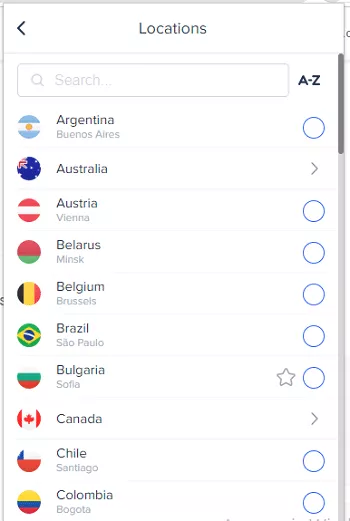
Technical support
Paid VPN provides good tech support, usually 24/7, and extensive guidelines. At the same time, the support free VPNs provide is often poor. So you’ll have to look up necessary information on the settings on your own. Which doesn’t always solve the problem.
Advertising
A paid VPN doesn’t mix third-party advertising into the traffic. What’s more, many paid VPN services, like VeePN, automatically block ads. Here’s how you can do it in Chrome:
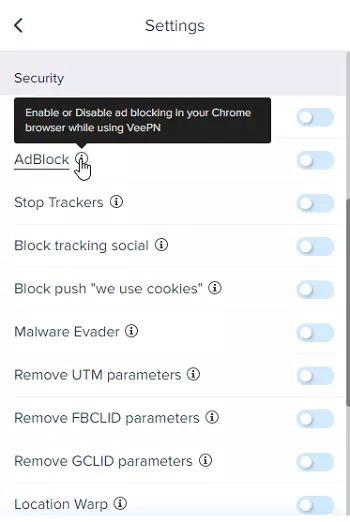
At the same time, free VPN service providers often collaborate with various advertising platforms to keep afloat. Which fills your online experience with relentless ads.
Bottom line: What is the difference between free VPN and paid VPN
| Free VPN | Paid VPN | |
|---|---|---|
| Extensive server network | No | Yes |
| Hidden IP address | Yes | Yes |
| Stable connection | No | Yes |
| Ads | Yes | No |
| Bandwidth limit | Yes | No |
| 24/7 support | No | Yes |
| Simultaneous connections | No | Yes |
| Additional security features | Few | Many |
How to choose the best VPN
Simply put — a paid VPN is your buddy if you look for an effective security and privacy solution. Here’s what you should keep in mind when choosing a paid VPN:
- Pay attention to where the VPN servers are located. If binding to a given country or even a city is important, choose providers who have servers at a needed location.
- Is there logging of requests? You can always clarify the details with support or the service’s guidelines. Always be sure to read the privacy policy, too.
- Technological solutions used. A huge variety of encryption algorithms, software, and hardware solutions work together to encrypt and render your data. Pay close attention to this.
- What platforms are supported, are there applications/software for them? In other words, make sure the service will work with the devices you need.
- Are there any restrictions on the number of connections, data volume, speed, and do they suit you?
- On what conditions and how quickly support reacts if you need it. What languages is it available in?
Benefits of paid VPNs
All in all, it’s a bitter pill to swallow…but you have to pay for things if you want a good service. To sum it up, paid VPNs do pay off. Why? Let’s take a final look.
- Large server network. Top VPNs let you choose from a great number of servers. VeePN offers 2500 servers scattered across 56 countries. The closer a server is to your actual location, the better your experience will be. You can also choose the Optimal Location’ feature — VeePN will do all the work for you and connect you to the best suited server.
- Solid privacy. Premium VPNs couldn’t care less what you do online. VeePN follows a No Logs policy — it doesn’t store connection or activity logs. So rest assured, your private information remains private.
- Strongest encryption. Top VPNs don’t let third parties track your data. They encrypt it with robust algorithms. VeePN uses AES-256 encryption and offers double VPN that makes your data unreadable. So, anyone who wants to get their hands on it won’t simply stand a chance.
- Lets you bypass any content blocks. With many servers located throughout the world, you can access any geo-restricted content you want. Just connect to a needed server and enjoy.
- Many additional features. Paid VPNs have many goodies up their sleeves. A kill switch to make sure your data is never exposed. DNS and IP leak protection for ultimate security. Ad/malware blocker for piece of mind. VeePN has it all. You can also connect to the app on up to 10 devices.
In the end, getting yourself a paid VPN is worth its money. Being able to browse the internet stress-free, what could be better? So, don’t take cybersecurity for granted — do all it takes to protect yourself online.
VeePN is freedom
Download VeePN Client for All Platforms
Enjoy a smooth VPN experience anywhere, anytime. No matter the device you have — phone or laptop, tablet or router — VeePN’s next-gen data protection and ultra-fast speeds will cover all of them.
Download for PC Download for Mac IOS and Android App
IOS and Android App
Want secure browsing while reading this?
See the difference for yourself - Try VeePN PRO for 3-days for $1, no risk, no pressure.
Start My $1 TrialThen VeePN PRO 1-year plan



